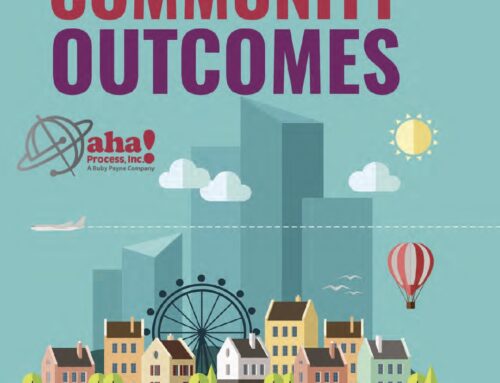 “Why should I give to children’s charities? Women in poverty just keep having babies.”
“Why should I give to children’s charities? Women in poverty just keep having babies.”
I have heard this more than once. People say things like, “It doesn’t do any good to give any more money. Women like that will just have another baby by another man. And why didn’t she put the name of the father on the birth certificate? She could get child support.”
Individuals who say things like this do not know about the invisible world of protection in which they live.
If you live in generational poverty (poverty that is persistent and concentrated—more than 40%) and you are female, one of the understandings you have is that protection from things like theft and violence is limited. In generational poverty neighborhoods, one does not call law enforcement if there is a problem. There are several reasons for this: distrust of law enforcement, slow response times, the severity of the punishment of the threatening person, or the fact that it happened so fast nothing can be done.
Protection is a huge issue not only for women but for their children as well. What women in generational poverty know is that if they are not protected, neither are their children. How do you fix that? You have men in and out of your household—and you make sure you always have at least one man around. It is protection. There is always a male presence, but it’s usually not the same man all the time.
According to William J. Wilson in When Work Disappears, one of the characteristics of generational poverty is that men do not have work or have only intermittent work. Having a man in the house can provide physical protection, but it’s also good if he can provide some economic support. If you have a man around and he loses his income, you still have protection but you need the support of social services.
Another contributing factor is that it is more difficult to get benefits if you are married. When it doesn’t make economic sense to be married, especially because work for men is intermittent, then you do not have a “permanent man.”
“But why don’t you list the father on the birth certificate so you can get child support?” you might ask. When work for men is intermittent or nonexistent, your child’s father will not always be able to pay child support. However, if a man is listed on the birth certificate, then the law will make him pay child support or they will put him in jail. If I am a woman and I have a baby daddy, I understand that he is much more valuable to me out of jail than in jail—even if he isn’t providing for me financially. He can still provide protection, and he’ll share his financial resources periodically. Why would I want him in jail? He is no good to me there. I keep his name off the birth certificate to keep him out of jail.
Some of you are reading this and disagreeing; you think this is simply not true. To you I issue this challenge: Try living in a high-poverty neighborhood on minimum wage with no gun and no karate skills. Your car is parked on the street and has rims, but maybe not for long. It is a 20-minute walk to public transportation, and in the winter it is dark. You put a third deadbolt on your door and put up cameras, but you understand that neither will keep your house from being robbed or keep people from entering when you are asleep. You asked the neighbors to turn down the music when they were partying at 2 a.m. and they threatened to harm you. When you walk to the dollar store, you have to do it in broad daylight to stay safer. And if you bring your children with you, how will you protect them?
Do you think you could last a week? A month? How about a lifetime?
If you cannot find it in your heart to give to charities for children this holiday season, I hope you will say a prayer of gratitude for all the layers of protection you may not even know you have.








